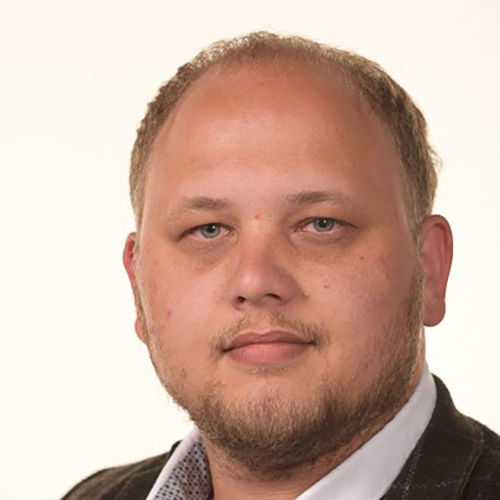Key details
Dr Mark A Honey
Deputy Head of School of Science (Interim)
Mark began his research career at the University of Nottingham, obtaining his EPSRC/GlaxoSmithKline funded PhD under the supervision of Professor Christopher J. Moody. After being awarded a Royal Society nominated JSPS Postdoctoral Fellowship for Foreign Researchers, Mark moved to the University of Tokyo to work on the development of organosuperbase catalysed reactions within the group of Professor Shu Kobayashi.
Upon returning to the UK, he joined the Institute of Cancer Research, working towards the development of novel kinase inhibitors, and subsequently at the Sussex Drug Discovery Centre working on early stage neuroscience projects. In March 2018 Mark moved to the University of Wolverhampton where he started his independent career as a Lecturer in Pharmaceutical Chemistry within the School of Pharmacy.
In November 2019 Mark moved to the Faculty of Engineering and Science at the University of Greenwich and is currently interim Deputy Head of the School of Science. Mark is a Member of the Royal Society of Chemistry, a Fellow of the Higher Education Academy, external examiner, peer reviewer, and PhD supervisor for a project working on the synthesis and biological evaluation of cyclic peptide natural product analogues.
Responsibilities within the university
Deputy Head of School of Science (Interim)
Programme Leader Pharmaceutical Science (BSc)
Awards
JSPS Postdoctoral Fellowship for Foreign Researchers
Recognition
Member of the Royal Society of Chemistry, Royal Society of Chemistry Reviewer Panel Member, Fellow of the Higher Education Academy, Leader of RxNet
Research / Scholarly interests
Decarboxylative halogenation
Our group focuses on the development of novel green catalytic systems, as well as investigating novel approaches towards the development of traditionally difficult to access chemistry. Our most recent work in this field focuses on metal free decarboxylative halogenations reactions of aromatic heterocyclic compounds.
Organosuperbase catalysis
Our group is interested in turning chemistry that historically requires stoichiometric quantities of reagents into a catalytic process – current investigations are utilising organosuperbases to achieve this goal.
Ion channel Modulation
Within the medicinal chemistry branch of our research, we are currently investigating the use of small molecules to modulate the purinergic receptor P2X4 for the treatment of conditions such as multiple sclerosis.
Antimicrobial Drug DiscoveryDue to the emergence of antibiotic resistance, the development of novel antibiotics (both chemical scaffolds and mechanisms of action) is of critical importance. Our group aims to exploit weaknesses in bacterial cell pharmacology, utilising novel small molecules with hybrid modes of action.
Recent publications
P. Beswick, B. Wahab, M. A. Honey, K. Jiang, M. Lochner, R. D. Murrell-Lagnado, A. J. Thompson, Neuropharmacology, 2019, 157, 107674
S. H. Henderson, R. A. West, S. E. Ward, M. A. Honey,* R. Soc. open sci., 2018, 5: 180333
A. Millinger, K. Schiemann, C. Rink. J. Sejberg, M. A. Honey et al., ACS Med. Chem. Lett., 2016, 59, 1078-1101
Kai Schiemann, Julian Blagg, Aurelie Mallinger, Christian Rink, Jimmy Sejberg, Mark Honey: WO2016009076
M. A. Honey, Y. Yamashita, S. Kobayashi, Chem. Commun., 2014, 50, 3288
M. A. Honey and C. J. Moody, J. Aus. Chem., 2014, 67, 1211-1216 (Special Edition)
